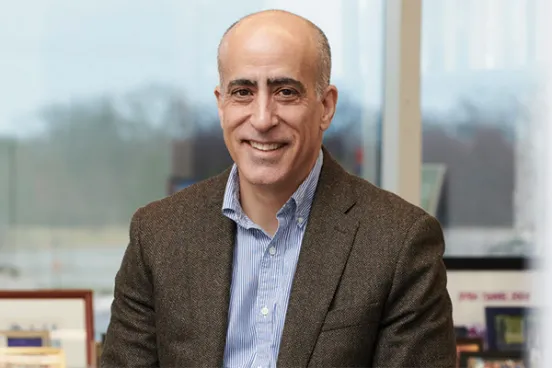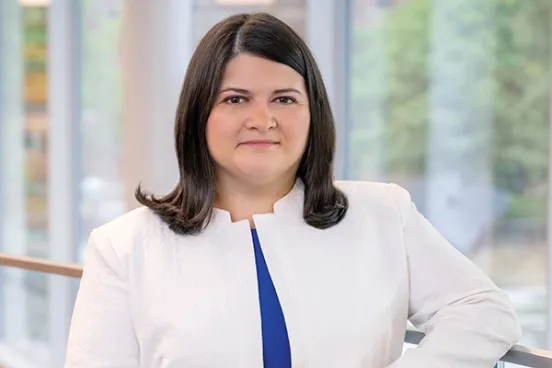
On the surface, litigation and poetry don’t appear to have much in common. But John Bulgozdy, ’84, says that the analytical skills he used throughout his legal career can be traced to an undergraduate poetry class at the University of Michigan.
During his studies in U-M’s College of Literature, Sciences, and the Arts (LSA), Bulgozdy’s poetry professor, Dan Fader, assigned a weekly one-page paper that required him to read a poem and then interpret the text. “This taught me about writing, analysis, and focusing my thoughts in a very concise and logical way,” says Bulgozdy.
He continued to develop his analytical skills and matriculated at Michigan Law as a summer starter two weeks after earning his undergraduate degree. “I applied to many different schools, but once I was accepted to the Law School, that made up my mind for me,” says Bulgozdy. “I always felt, in many ways, that I was at the right place at Michigan.”
John Bulgozdy, ’84“I always felt, in many ways, that I was at the right place at Michigan.”
Bulgozdy was impelled by his professors at the Law School to analyze increasingly complex legal topics. “I always thought my professors were incredibly smart,” he says. “I was inspired by the fact that they had done truly interesting things, and they made me want to be better and smarter.”
After graduating, Bulgozdy clerked in the chambers of the Hon. John D. Holschuh of the US District Court for the Southern District of Ohio, for whom he had interned during his 1L summer. “I got to work on all kinds of different cases, and I got to sit and talk with the judge about how he made his decisions,” he says. “I learned a tremendous amount, and it stayed with me throughout my career.”
One important lesson Judge Holschuh instilled in him was the importance of making legal arguments that are simultaneously clear, succinct, and comprehensive.
“When you’re advocating in front of a judge, you need to give them the tools to decide the case,” he says. “Federal district judges are extremely busy, so focusing on the critical facts and applying the law in a page-limited brief is the best way to help the court, and its clerks, reach the right decision.”
In addition, because judges can make key credibility determinations, Bulgozdy says, “As a trial lawyer, I always included witness credibility as an important part of any case argument, in part because it could help insulate a favorable opinion on appeal.”
After two years in Ohio, Bulgozdy moved to Washington, DC, and joined Squire, Sanders & Dempsey (now Squire Patton Boggs) in its litigation practice. “I worked with good partners who did fee counsel work for the Federal Savings and Loan Insurance Corporation,” he says. “I was assigned to do all pretrial discovery and motion work, as well as trial work. Instead of being a consumer of legal briefs, I was now a writer and producer of them.”
He left private practice to join the US Securities and Exchange Commission (SEC) in DC, working first as a staff attorney before being promoted to senior counsel and branch chief. This work eventually led him to California when a trial attorney position opened up in the Division of Enforcement at the Los Angeles Regional Office of the SEC. Bulgozdy remained a senior trial counsel in LA until his retirement.
“It was fun work,” he says. “I was taking complex financial issues and boiling them down to something understandable for a busy federal judge to read. In the process, I often remembered lessons learned when Professor Fader challenged me to analyze all aspects of a poem in a single page.”
Giving back to the University of Michigan was an obvious choice for Bulgozdy when he set out to plan his estate. He recently documented a $1 million bequest to Michigan Law, in addition to a $100,000 gift to LSA. The two bequests will establish need-based scholarships to help students make the most of all the University has to offer.
“I was thinking about where I wanted the money to go,” Bulgozdy says. “After generously providing for my loved ones, I thought helping people get a great education from the University of Michigan was the right choice.”







